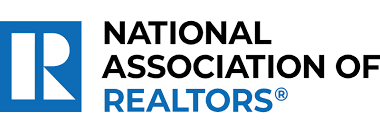How Much More Does the Fed Need to Cut Rates for 3.5% Mortgages?
Understanding the Connection Between Federal Rate Cuts and Mortgage Rates with sPlan Realty
For homeowners and prospective buyers, a 30-year fixed mortgage rate of 3.5% sounds like a dream, especially with current rates averaging around 6.8%. But what would it take for the market to return to such low rates? At sPlan Realty, we explore the factors influencing mortgage rates and what it might take for the Federal Reserve’s policies to pave the way for lower borrowing costs.
Where Mortgage Rates Stand Today
As of late 2024, the 30-year fixed mortgage rate hovers near 6.8%, while the federal funds rate is set between 4.5% and 4.75%. Historically, mortgage rates are 1.5 to 2 percentage points higher than the federal funds rate due to factors such as risk premiums, lender costs, and investor demand for mortgage-backed securities.
How the Fed Influences Mortgage Rates
The Federal Reserve doesn’t directly control mortgage rates but influences them significantly by adjusting the federal funds rate—the rate at which banks lend to one another overnight. Here’s how:
Lower Borrowing Costs: A cut in the federal funds rate reduces borrowing costs across the economy, often leading to lower mortgage rates.
Market Reactions: Lower rates can shift investor behavior, increasing demand for mortgage-backed securities and further reducing mortgage rates.
Inflation and Growth: Inflation expectations and overall economic conditions also play a role in how much mortgage rates respond to Fed policies.
What Would It Take to Achieve a 3.5% Mortgage Rate?
Achieving a 3.5% average rate on 30-year fixed mortgages would likely require the federal funds rate to drop significantly, possibly to around 1.5% or lower. Here’s why:
The Historical Spread: The typical 1.5 to 2 percentage point gap means mortgage rates track closely with trends in federal funds rate adjustments.
Economic Challenges: Such significant rate cuts often occur during recessions or periods of economic instability, where inflation expectations are low, and the Fed seeks to stimulate growth.
Even with these adjustments, other factors—like lender costs, housing demand, and global economic conditions—would also need to align to bring mortgage rates down to 3.5%.
Key Considerations for Buyers and Homeowners
While lower mortgage rates could save you money, they often coincide with broader economic challenges. Here’s what to keep in mind:
Opportunities to Refinance: Homeowners with higher-rate mortgages should stay informed and prepared to refinance if rates drop.
Market Dynamics: Falling rates can increase homebuyer demand, which may drive up property prices.
Long-Term Planning: Evaluate how potential rate changes fit into your financial goals and housing plans.
Why Work with sPlan Realty?
At sPlan Realty, we combine market expertise with personalized service to help you navigate the complexities of the real estate market. Whether you’re considering a purchase, sale, or refinance, we’re here to provide the insights and support you need to make confident decisions.
Take the Next Step with sPlan Realty
If you’re curious about how changing interest rates could impact your real estate plans, contact sPlan Realty today. Let’s work together to explore your options and take advantage of opportunities in the ever-changing market.








